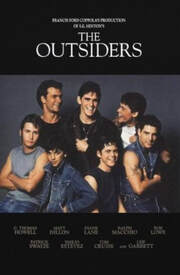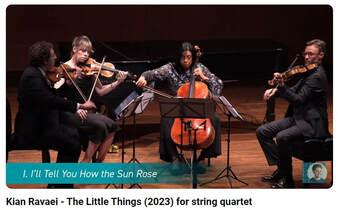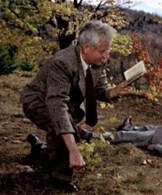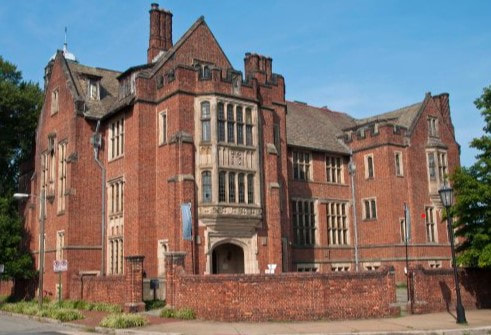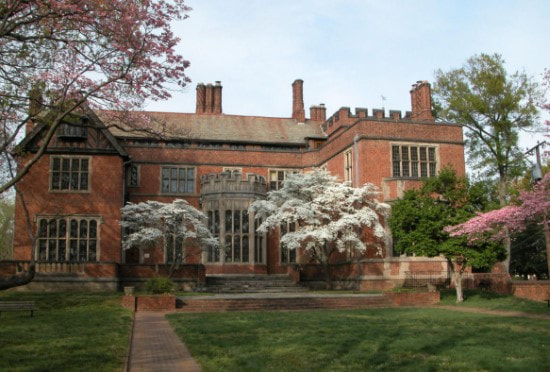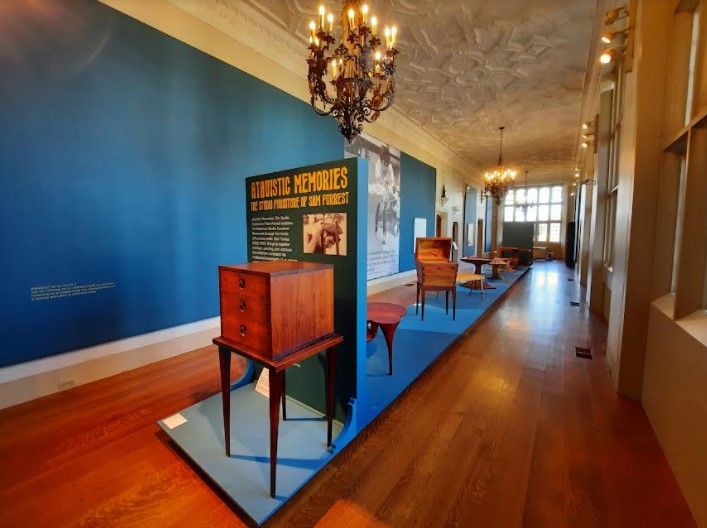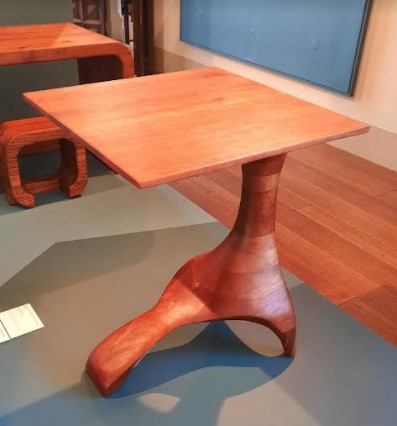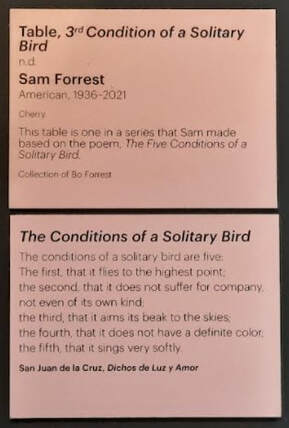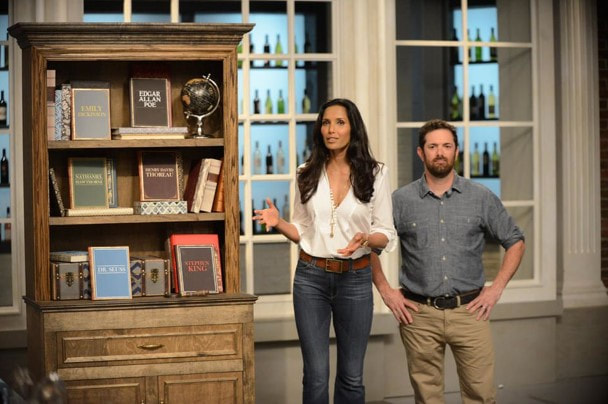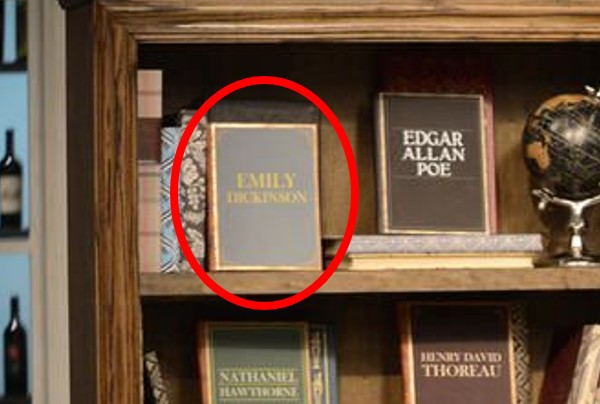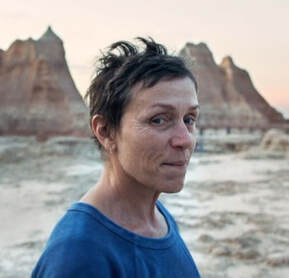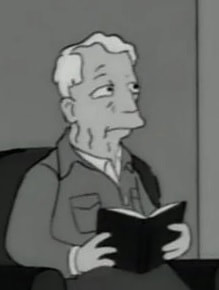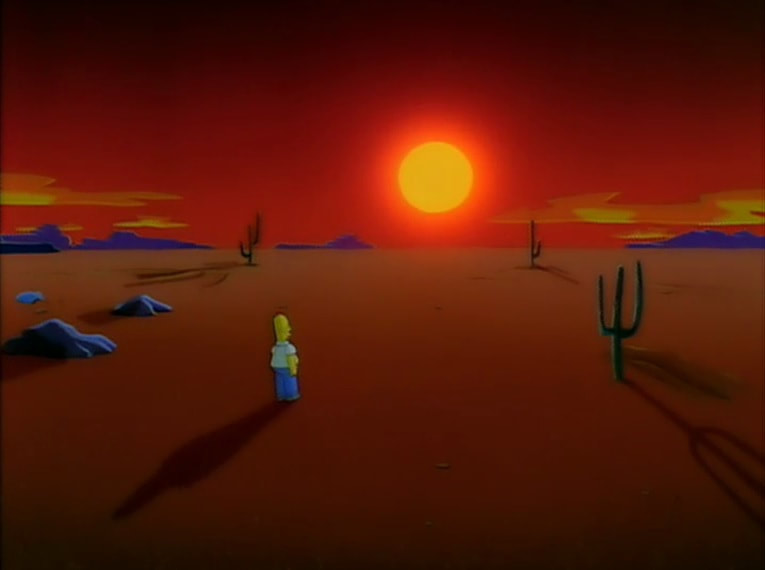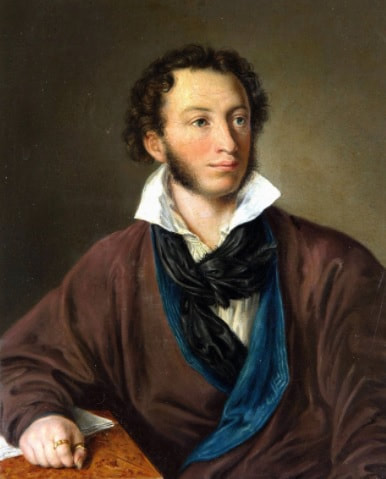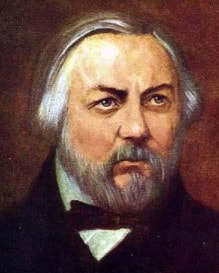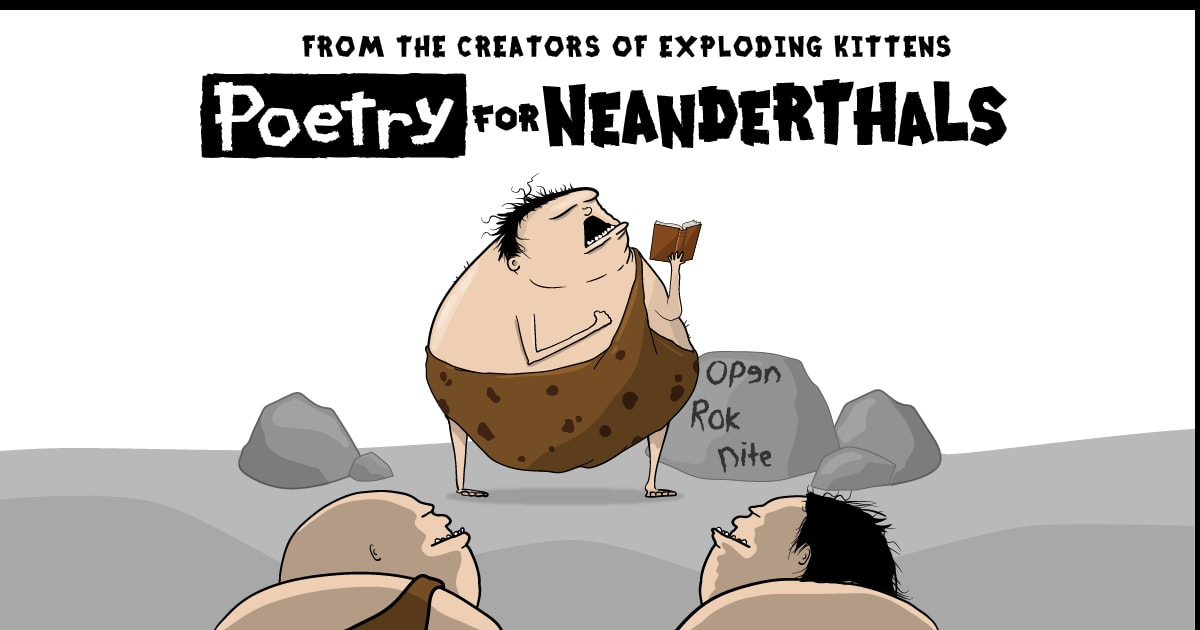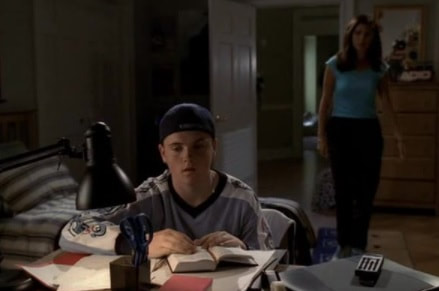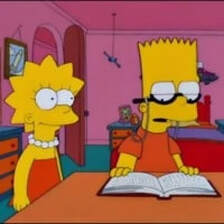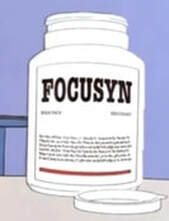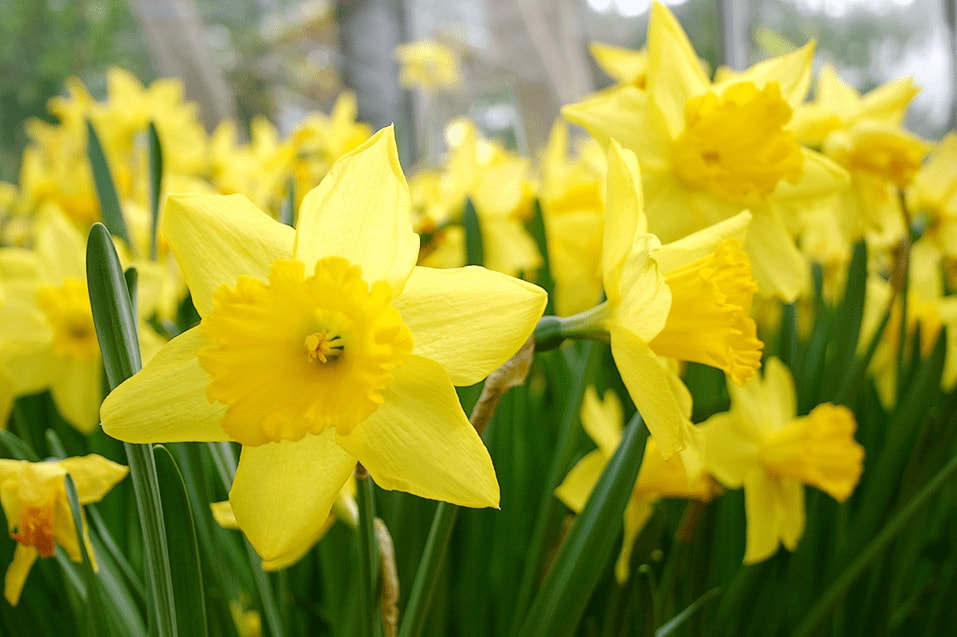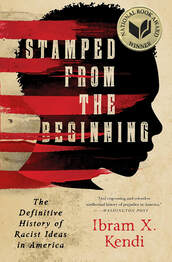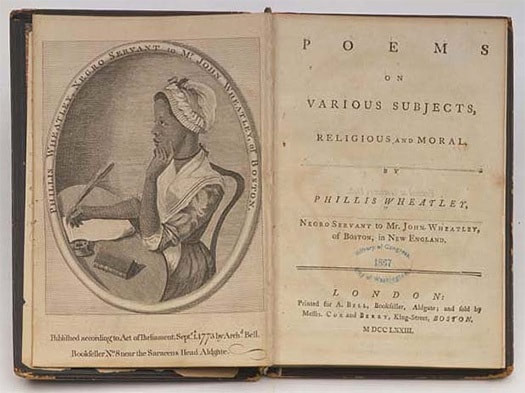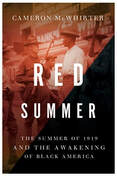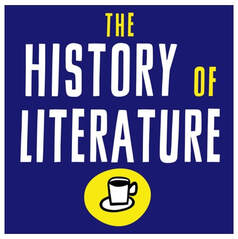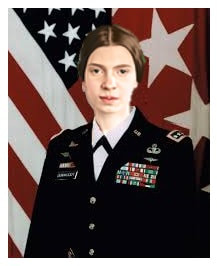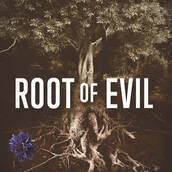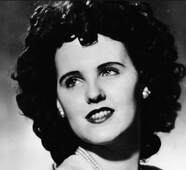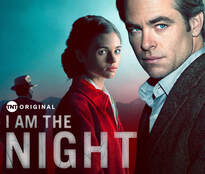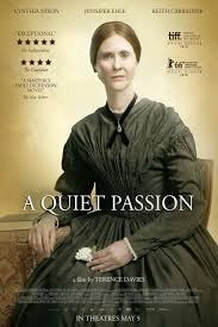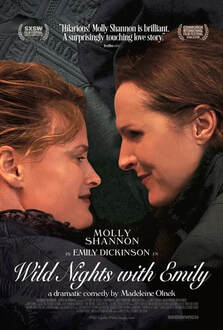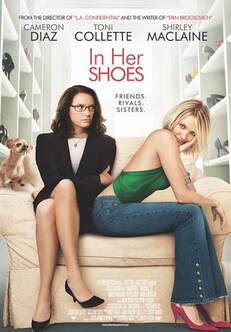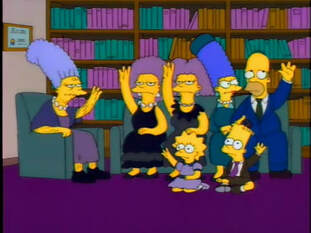~ POETRY ALERT ~ POETRY ALERT ~ POETRY ALERT ~ POETRY ALERT ~
When we spot poetry in a movie, book, podcast and/or any other type of published work, we will let you know!
March 4, 2024
I've been negligent in posting various poetry alerts; however, I have two which I can post today to get caught up somewhat -- even if just a little bit. ; )
|
1. The first involves the movie "The Outsiders," based on the 1967 book written by S. E. Hinton.
i was talking to my wife, and she mentioned that she had never seen the movie -- so we watched it. In the movie -- and I assume in the book? (it's been YEARS since I read it -- Robert Frost's poem "Nothing Gold Can Stay" is recited by Ponyboy Curtis to Johnny Cade while they are hiding at the old church. Johnny later refers to the poem in his last words to Ponyboy ("Stay gold!") and in his letter which Ponyboy received after Johnny's death. 2. Today I was listening to "Performance Today," a Peabody Award-winning classical music radio program that first aired in 1987 and has been hosted since 2000 by Fred Child. On today's episode -- which prompted me to post these two "Poetry Alerts" -- the show included a seven-movement string quartet by composer Kian Ravaei, and each movement is based on a poem by Emily Dickinson. |
|
I. I’ll Tell You How the Sun Rose
II. High from the Earth I Heard a Bird III. Two Butterflies Went Out at Noon IV. A Narrow Fellow in the Grass V. The Moon Was But a Chin of Gold VI. A Spider Sewed at Night VII. If I Can Stop One Heart From Breaking Click on the picture at the left -- or HERE -- to hear Ravaei's work. Information on the piece is HERE. Info on other pieces by Ravaei is HERE. |
August 18, 2023
Wow! It's been over a year since I last posted a "poetry alert."
Am I being lazy and slacking at my commitment to post "alerts"? Am I just not seeing references to poetry in popular culture? Is it a combination of both reasons? I dunno. However, I was watching Alfred Hitchcock's dark comedy "The Trouble with Harry" this week, and I came across a scene and some trivia about the movie that warrants a "Poetry Alert."
I'd seen the movie once many years ago, but now I'm part of a weekly movie Zoom group (started during the COVID lock down), and this summer we've been having an Alfred Hitchcock Festival with six of his lesser-known films, and yes -- this week we watched "The Trouble with Harry." The group is going to discuss the movie in our Zoom get-together tonight.
Am I being lazy and slacking at my commitment to post "alerts"? Am I just not seeing references to poetry in popular culture? Is it a combination of both reasons? I dunno. However, I was watching Alfred Hitchcock's dark comedy "The Trouble with Harry" this week, and I came across a scene and some trivia about the movie that warrants a "Poetry Alert."
I'd seen the movie once many years ago, but now I'm part of a weekly movie Zoom group (started during the COVID lock down), and this summer we've been having an Alfred Hitchcock Festival with six of his lesser-known films, and yes -- this week we watched "The Trouble with Harry." The group is going to discuss the movie in our Zoom get-together tonight.
|
In the movie, one character -- a doctor -- is reading a book and not paying attention to where he is going. As a result, he trips over the corpse of Harry Worp. This actually happens a couple of times in the film. Later, in one other scene, the doctor walks by presumably reciting what it was he had been reading.
According to the Trivia Page for the movie on IMDb.com, "The poem that the doctor is reading when he finally discovers the body is Sonnet 116 by William Shakespeare." Pictured at the right: Dr. Greenbow (played by Dwight Marfield) keeps reading after he trips over the dead body of Harry Worp (played by Philip Truex) in Alfred Hitchcock's dark comedy, "The Trouble with Harry." |
March 2, 2022
So how weird is this: I haven't posted a "Poetry Alert" in almost a year, and now I'm posting the second alert in as many days (see directly below for the "Poetry Alert" from yesterday). This time around, my wife and I traveled to Richmond, VA, today, and we checked out an exhibit on furniture design at the Branch Museum of Architecture and Design; info on the museum and the exhibit is HERE and HERE.
All of the pieces of furniture in the exhibit were the works of artisan Sam Forest (1936 - 2021; info HERE). The works were as beautiful as they were creative, and one piece in particular caught my eye because it was inspired by a poem by San Juan de la Cruz (St. John of the Cross) on "The Conditions of a Solitary Bird."
Below left and right: The Branch Museum of Architecture and Design in Richmond, VA.
All of the pieces of furniture in the exhibit were the works of artisan Sam Forest (1936 - 2021; info HERE). The works were as beautiful as they were creative, and one piece in particular caught my eye because it was inspired by a poem by San Juan de la Cruz (St. John of the Cross) on "The Conditions of a Solitary Bird."
Below left and right: The Branch Museum of Architecture and Design in Richmond, VA.
Below: Inside the Branch Museum at the start of their exhibit "Atavistic Memories."
Below left: Sam Forrest's table "3rd Condition of a Solitary Bird" Below right: Information on the table and the poem that inspired it.
March 1, 2022
Wow -- it's been almost a year since I last posted a "Poetry Alert" -- and I know I've missed one or two. For example, there's one I need to post concerning the movie "To Sir, With Love," a movie I re-watched a little over a month ago in tribute to the late, great actor Sidney Poitier.
Anyway, this alert has to do with a reality show I've been binge-watching this winter, Broavo TV's cooking competition "Top Chef."
The twelfth season of the show was filmed in Boston, and the ninth episode of that series had a literary flair: In the elimination challenge of the show -- the main challenge of the week -- the chefs were tasked with creating a dish inspired by a work from a famous New England author. And was among the list of authors? None other than the Belle of Amherst, Emily Dickinson.
Anyway, this alert has to do with a reality show I've been binge-watching this winter, Broavo TV's cooking competition "Top Chef."
The twelfth season of the show was filmed in Boston, and the ninth episode of that series had a literary flair: In the elimination challenge of the show -- the main challenge of the week -- the chefs were tasked with creating a dish inspired by a work from a famous New England author. And was among the list of authors? None other than the Belle of Amherst, Emily Dickinson.
Which books were picked first -- and was the volume of Dickinson among them? What did the Chef who picked Dickinson make? No spoiler alerts here -- you'll just have to watch the episode. OR -- if you can't wait -- you could read a recap of the episode, HERE.
One final thought, if you had to create a culinary dish inspired by the work of Emily Dickinson, what would you make?
One final thought, if you had to create a culinary dish inspired by the work of Emily Dickinson, what would you make?
March 28, 2021
This poetry alert is a "twofer" -- two different poetry alerts in one post!
|
NOMADLAND: After losing everything in the Great Recession, a woman (played by Frances McDormand) embarks on a journey through the American West, living as a van-dwelling modern-day nomad.
Toward the end of the movie, McDormand's character recites one of Shakespeare's sonnets. I won't divulge which one and/or for what reason, but it's likely one you'll be familiar with! : )
|
THE SIMPSONS: After a disastrous performance in Episode 15 of the sitcom's 9th season, Krusty the Clown changes his image and becomes an edgy stand-up.
During a press conference to announce his retirement, Krusty reads portions of A. E. Houseman's poem "To an Athlete Dying Young." Read the full poem by clicking HERE.
|
February 19, 2021
The other day I was watching "I Love Lisa," the 15th episode of the 4th season of the Simpsons. In the episode, Lisa gives Ralph a Valentine's card out of pity and then regrets it when he develops a crush on her. At one point, though, the two attend Krusty the Klown's 29th anniversary show, and Krusty shows some clips from his past shows -- and lo and behold, there was Robert Frost reading his poem "Stopping By Woods On A Snowy Evening."
|
Krusty the Klown: Ah, let's look at some clips... [black-and-white segment showing Robert Frost reading "Stopping By Woods On A Snowy Evening."] Robert Frost: "He will not see me stopping here, to watch his woods fill up with snow..." Krusty then jokes about his name, "Hey, Frosty! You want some snow, man?" and he proceeds to dump an avalanche of snow on him. By the way, this was not the first time Robert Frost was featured in the Simpsons. Scroll down on this page to the "Poetry Alert" dated May 8, 2020 -- our very first "Poetry Alert." |
January 8, 2021
|
I've noted in poetry alert posts below that I have been posting my Top 100 Classical Music Favorites on a separated website, and today I posted #75 on that list, "Clair de Lune," HERE. In researching information for the post, I discovered that the work by Debussy was based on a poem of the same name written in 1869 by French poet Paul Verlaine. The poem is below on the left (a translation is on the right). The poem has also been set to music by Gabriel Fauré, Louis Vierne and Josef Szulc. |
|
|
Votre âme est un paysage choisi
Que vont charmant masques et bergamasques Jouant du luth et dansant et quasi Tristes sous leurs déguisements fantasques. Tout en chantant sur le mode mineur L'amour vainqueur et la vie opportune Ils n'ont pas l'air de croire à leur bonheur Et leur chanson se mêle au clair de lune, Au calme clair de lune triste et beau, Qui fait rêver les oiseaux dans les arbres Et sangloter d'extase les jets d'eau, Les grands jets d'eau sveltes parmi les marbres. |
Your soul is a chosen landscape
Where charming masquerades and dancers are promenading, Playing the lute and dancing, and almost Sad beneath their fantastic disguises. While singing in a minor key Of victorious love, and the pleasant life They seem not to believe in their own happiness And their song blends with the light of the moon, With the sad and beautiful light of the moon, Which sets the birds in the trees dreaming, And makes the fountains sob with ecstasy, The slender water streams among the marble statues. |
December 22, 2020
|
I've been posting my "Top 100 Classical Music Favorites" on a different website -- HERE -- and since yesterday was the Winter Solstice and today is the first full day of winter, I thought it was appropriate to post Vivaldi's "The Four Seasons" on my site. As I was looking for YouTube videos of the piece and other information to post, I discovered something that I never knew: The four concertos were written to go along with four sonnets. The four sonnets are HERE. Although it is not known who wrote the sonnets, there is some debate that Vivaldi might have even written them himself. Who knew! Goes to show you that you do, in fact, learn something everyday! : ) |
|
December 21, 2020
I have two poetry alerts today. However, the first one is not about a specific poem or poet; instead it's just a funny line of dialogue about poets that I thought I would pass on.
This particular line comes from Episode 9 from Season 8 of "The Simpsons," "El Viaje Misterioso De Nuestro Jomer" ("The Mysterious Voyage of Homer").
In the episode, Marge tries to prevent Homer from finding out about Springfield's "Chili Cook-Off" because Homer got drunk and made a fool of himself at the previous year's cook-off.
"What are you trying to hide from me? snaps Homer. He opens the front door and sniffs. "What's that smell? Onions ... chili powder ... cumin ... juicy ground chuck? It's Chili! Oh my God, I'm missing the Chili Cook-Off! I'm missing the Cook-Off, it's going on right now, and I'm missing it!"
"All right! I was trying to keep it from you!" confesses Marge.
And here's where the line comes in:
"I had a good reason," bewails Marge. "Every time you go to that Cook-Off you get as drunk as a poet on payday!"
Below: Just prior to his mysterious journey, Homer Simpson samples the merciless pepper of Quetzalacatenango, also known as the Guatemalan Insanity Pepper, grown deep in the jungle by inmates of an insane asylum.
This particular line comes from Episode 9 from Season 8 of "The Simpsons," "El Viaje Misterioso De Nuestro Jomer" ("The Mysterious Voyage of Homer").
In the episode, Marge tries to prevent Homer from finding out about Springfield's "Chili Cook-Off" because Homer got drunk and made a fool of himself at the previous year's cook-off.
"What are you trying to hide from me? snaps Homer. He opens the front door and sniffs. "What's that smell? Onions ... chili powder ... cumin ... juicy ground chuck? It's Chili! Oh my God, I'm missing the Chili Cook-Off! I'm missing the Cook-Off, it's going on right now, and I'm missing it!"
"All right! I was trying to keep it from you!" confesses Marge.
And here's where the line comes in:
"I had a good reason," bewails Marge. "Every time you go to that Cook-Off you get as drunk as a poet on payday!"
Below: Just prior to his mysterious journey, Homer Simpson samples the merciless pepper of Quetzalacatenango, also known as the Guatemalan Insanity Pepper, grown deep in the jungle by inmates of an insane asylum.
My second poetry alert does involve an actual poem.
On a newly-created site, I have been posting my Top 100 Classical Music Favorites, HERE. I also have a feature on the site where I listen to a piece of classical music that I've never heard before, and then I post my reaction to it, HERE.
On a newly-created site, I have been posting my Top 100 Classical Music Favorites, HERE. I also have a feature on the site where I listen to a piece of classical music that I've never heard before, and then I post my reaction to it, HERE.
|
Recently I posted comments on a work by Arnold Schoenberg called "Verklärte Nacht" ("Transfigured NIght"), HERE.
It turns out that Schoenberg's work is programmatic work inspired by a poem, "Tranfigured Night," by German Poet Richard Dehmel. The poem opens with these lines: Two people walk through a bare, cold grove; The moon races along with them, they look into it. The moon races over tall oaks, No cloud obscures the light from the sky, Into which the black points of the boughs reach. A woman’s voice speaks: I’m carrying a child, and not yours, |
|
The entire poem can be found HERE.
November 17, 2020
If you happened to catch my "poetry alert" yesterday (below), then you know that on a different web site, I'm posting my "Top 100 Classical Music Favorites" -- HERE.
Today, I posted a piece that's been a favorite of mine since my days in high school band, the "Festive Overture" by Dimitri Shostakovich. It turns out that Shostakovich based his piece on the overture of Mikhail Glinka's opera, "Ruslan and Ludmilla" -- another favorite of mine.
Today, I posted a piece that's been a favorite of mine since my days in high school band, the "Festive Overture" by Dimitri Shostakovich. It turns out that Shostakovich based his piece on the overture of Mikhail Glinka's opera, "Ruslan and Ludmilla" -- another favorite of mine.
|
|
|
|
Well, it turns out that Glinka's opera "Ruslan and Ludmilla" is based on a poem of the same name by Russian poet Alexander Pushkin. You can read the complete poem HERE, and you can read about the poem HERE. Pictured at the left: Russian poet Alexander Pushkin. Picture at the right: Composer Mikhail Glinka NOTE: I've seen the second name in the title of the poem & opera written as LudMILLA, LudMILA, and LYUDMILA. |
November 16, 2020
The other day I started posting my "Top 100 Classical Music Favorites" -- HERE. The Top 100 are numbered -- so that I'll know when I reach 100 -- but they are not ranked in any way.
Just this morning, I posted the tenth song on my list, and it happened to be Aaron Copland's "Appalachian Spring." As part of the post, I included this information from Wikipedia:
Just this morning, I posted the tenth song on my list, and it happened to be Aaron Copland's "Appalachian Spring." As part of the post, I included this information from Wikipedia:
|
Originally, Copland did not have a title for the work, referring to it simply as "Ballet for Martha"—a title as simple and direct as the Shaker tune 'Tis the Gift to be Simple quoted in the music.[7] Shortly before the premiere, Graham suggested Appalachian Spring, a phrase from a Hart Crane poem, "The Dance" from a collection of poems in his book "The Bridge."
O Appalachian Spring! I gained the ledge; Steep, inaccessible smile that eastward bends And northward reaches in that violet wedge Of Adirondacks! Because he composed the music without the benefit of knowing what the title was going to be, Copland was often amused when people told him he captured the beauty of the Appalachians in his music, a fact he alluded to in an interview with NPR's Fred Calland.[8] Little known is that the word "spring" denotes a source of water in the Crane poem; however, the poem is a journey to meet springtime. |
|
To read the complete poem by Bret Hart, click HERE.
November 11, 2020
Usually I post "poetry alerts" on this page when I come unexpectedly come across poetry featured in a movie, a television show, a podcast, or a book.. This alert is not like any of those. Instead, I just wanted to give a heads up about a game of poetry that I just discovered: Poetry for Neanderthals. I have not played the game so I can't review it per se -- I just learned about it tonight and thought I would pass the information along.
|
Poetry good. Oops. According to the "how it works" page above on the right, one can't use words with more than one syllable -- so if looks like you can hit me with the inflatable club. Check out the video on the right, "This Is How to Play Poetry for Neanderthals." |
|
October 26, 2020
I'll admit, we didn't watch "The Sopranos" when it originally aired. Years later, we thought we'd try it -- and it turns out we accidentally streamed Season 3, Episode 1 thinking it was the first episode, and it just didn't do anything for us. So we didn't watch anymore.
Now this year -- since we've been at home more thanks to the Trump Virus -- we thought we'd give the series another chance. This time around, Season 3, Episode 1 made sense to us since we did, in fact, watch all of Seasons 1 and 2.
Tonight, we finished Season 3, Episode 2, and at one point, Anthony Soprano Jr. is in his bedroom doing homework, and he has to analyze Robert Frost's poem "Stopping By Woods On A Snowy Evening." The young Mr. Soprano struggles with the poem, and his sister comes into his room and offers some help.
Now this year -- since we've been at home more thanks to the Trump Virus -- we thought we'd give the series another chance. This time around, Season 3, Episode 1 made sense to us since we did, in fact, watch all of Seasons 1 and 2.
Tonight, we finished Season 3, Episode 2, and at one point, Anthony Soprano Jr. is in his bedroom doing homework, and he has to analyze Robert Frost's poem "Stopping By Woods On A Snowy Evening." The young Mr. Soprano struggles with the poem, and his sister comes into his room and offers some help.
|
By Robert Frost:
Whose woods these are I think I know. His house is in the village though; He will not see me stopping here To watch his woods fill up with snow. My little horse must think it queer To stop without a farmhouse near Between the woods and frozen lake The darkest evening of the year. He gives his harness bells a shake To ask if there is some mistake. The only other sound’s the sweep Of easy wind and downy flake. The woods are lovely, dark and deep, But I have promises to keep, And miles to go before I sleep, And miles to go before I sleep. |
October 1, 2020
|
Episode 2 of Season 11 of the Simpsons has a reference to "I Wandered Lonely As A Cloud," by William Wordworth.
In the episode titled "Brother's Little Helper," Bart is diagnosed with ADHD, so his parents try the drug "Focusyn" to help him gain focus in school -- and the drug helps -- at first. In a scene in Ms. Krabappel's classroom when she is about to start a lesson on poetry, all of the children except Bart rush to the windows to see two "naughty dogs" in the schoolyard (no -- it's not what you think). Ms. Krabappel is stunned to see Bart still in his seat. Bart yells to his classmates, ‘C’mon people, this poetry isn’t going to appreciate itself!’ |
The scene is short, and only a couple of lines of Wordsworth's poem are read, but hey -- it's poetry.
Any by the way, below is "I Wandered Lonely As A Cloud ~ AND ~ two other of my favorite poems about daffodils.
Any by the way, below is "I Wandered Lonely As A Cloud ~ AND ~ two other of my favorite poems about daffodils.
|
By William Wordsworth:
I wandered lonely as a cloud That floats on high o'er vales and hills, When all at once I saw a crowd, A host, of golden daffodils; Beside the lake, beneath the trees, Fluttering and dancing in the breeze. Continuous as the stars that shine And twinkle on the milky way, They stretched in never-ending line Along the margin of a bay: Ten thousand saw I at a glance, Tossing their heads in sprightly dance. The waves beside them danced; but they Out-did the sparkling waves in glee: A poet could not but be gay, In such a jocund company: I gazed—and gazed—but little thought What wealth the show to me had brought: For oft, when on my couch I lie In vacant or in pensive mood, They flash upon that inward eye Which is the bliss of solitude; And then my heart with pleasure fills, And dances with the daffodils. |
By Emily Dickinson
The Skies can't keep their secret! They tell it to the Hills – The Hills just tell the Orchards – And they – the Daffodils! A Bird – by chance – that goes that way – Soft overhears the whole – If I should bribe the little Bird – Who knows but she would tell? I think I won't – however – It's finer – not to know – If Summer were an Axiom-- What sorcery had Snow? So keep your secret – Father! I would not – if I could, Know what the Sapphire Fellows, do, In your new-fashioned world! |
By E. E. Cummings:
in time of daffodils(who know the goal of living is to grow) forgetting why,remember how in time of lilacs who proclaim the aim of waking is to dream, remember so(forgetting seem) in time of roses(who amaze our now and here with paradise) forgetting if,remember yes in time of all sweet things beyond whatever mind may comprehend, remember seek(forgetting find) and in a mystery to be (when time from time shall set us free) forgetting me,remember me |
August 29, 2020
|
I'm currently reading Ibram X. Kendi's Stamped from the Beginning, The Definitive History of Racist Ideas in America. Kendi described the format of the book in his prologue as follows:
"Stamped from the Beginning narrates the entire history of racist ideas, from their origins in fifteenth-century Europe, through colonial times when the early British settlers carried racist ideas to America, all the way to the twenty-first century and current debates about the events taking place on our streets. Five main characters, in particular will serve as our tour guides as we explore the landscape of racial ideas through five periods in American history." The five "tour guides" are Cotton Mather, Thomas Jefferson, William Lloyd Garrison, W. E. B. DuBois and Angela Davis. In Chapter 8, the second chapter of Part II of the book (focused on the life and times of Thomas Jefferson), Kendi includes a brief history of poet Phillis Wheatley. Wheatley's Poems on Various Subjects was "the first ever (published) by an African American woman and the second by an American woman." |
|
Way back when, when I was in college, I read a few selections by Wheatley in a class on American poetry, but we did not really delve into her history.
For example, I had no idea that in 1772 a jury of "the most respectable characters in Boston" -- all white men of course -- had been assembled to judge whether Phillis Wheatley had actually written her poetry. SPOILER ALERT: The reputable Bostonians concluded, "We whose Names are under-written do assure the World, that the Poems specified in the following Page, were (as we verily believe) written by Phillis, a young Negro Girl...." If you know little to nothing of Phillis Wheatley, definitely take a look at Stamped from the Beginning and/or do some quick searches into her life and work. |
August 14, 2020
|
Before I get to the poetry alert (over there on the right), please take, take the quiz below -- and be honest.
1. When did you first learn about the Green Book? a. Huh? What's the Green Book? b. When the movie "Green Book" was released. c. Long before the movie was released. 2. When did you first learn about the Black National Anthem? a. There's a Black National Anthem? b. In July when Twitter was all a-flutter because the NFL announced plans to play Lift Ev’ry Voice & Sing before every game during the first week of its season. c. Long before the NFL/Twitter controversy. 3. When did you first learn about Juneteenth? a. June the what? b. Back in June when Trump announced plans for one of his Klan rallies in Tulsa on Juneteenth. c. Long before Trump's announced Klan rally. 4. When did you first learn about the 1921 Tulsa Race Massacre? a. The Tulsa Race what? b. This past year when I watched Episode 1 of HBO's "Watchmen." c. Long before HBO's "Watchmen" premiered. 5. When did you first learn about Emmett Till? a. Who is Emmett Till? b. When I read John Lewis' final essay, "Together, You Can Redeem the Soul of Our Nation," published shortly after his death in July 2020. c. Long before the New York Times published John Lewis' essay. 6. When did you first learn about the Red Summer? a. The Red What? b. Seriously. The Red What? c. I know of the Red Summer of 1919 |
I just finished Cameron McWhirter's Red Summer: The Summer of 1919 and the Awakening of Black America."
Red Summer is truly an incredible and powerful book about a shameful and dark period in our history, parallel in many ways to our current disgraceful times since a racist in the White House helped to define both time periods, Woodrow Wilson in 1919 and Klansman Donald Trump in 2020, "Yet," as McWhirter points out, "despite the Red Summer's importance, most Americans have no idea of the crucible of 1919, despite its importance in shaping modern race relations." If I have time soon, I'll write more about Red Summer in my plog (poetry blog). For now, I just wanted to include a "poetry alert" about page 262, when McWhirter noted the following: "The Red Summer also launched an infectious artistic energy among younger Black Americans. Teenager Langston Hughes kept a notebook in 1919 to sketch or write down his musings, including these undated lines: If you strike a thorn or rose, Keep a-goin’! If it hails, or ef it snows, Keep a-goin’! ’Taint no use to sit an’ whine, When the fish ain’t on yer line; Bait yer hook an’ keep On tryin-- Keep a-goin’!" |
McWhirter's book implies that Langston Hughes wrote the poem, and his section of notes includes this about "Keep a-Goin": "Langston Hughes notebook, 1919, JWJY (James Weldon Johnson & Grace Nail Johnson Papers. New Haven: Yale Collection of American Literature, Beinecke Rare Book and Manuscript Library), Box 511, Folder 12685." However, the poem "Keep a-Goin" was written in 1900 by Frank Lebby Stanton, HERE (interestingly, Stanton used the word "Ef" instead of "If" in the first and third lines).
This poem caught my eye, though, because I knew it as the song "Keep a-Goin" sung by the character Haven Hamilton, portrayed by Henry Gibson, in Robert Altman's film "Nashville," one of my favorite movies. I seemed to think that Gibson took credit for writing the lines, but maybe I'm wrong? I found this on Wikipedia, "During the 1960s, Gibson had appeared on The Dick Van Dyke Show reading the poem "Keep a-Goin'", which he later turned into a song in the Robert Altman movie Nashville (1975). Notably, he was nominated for a Golden Globe Award for his portrayal of Haven Hamilton in the film and won the National Society of Film Critics award for the role." I also found this at AllPoetry.com: "Henry Gibson took 'credit' for writing the lyrics to this song "Keep a Goin'" in the Robert Altman film NASHVILLE. However there is sufficient evidence that this poem was written by Stanton and published before the making of the film."
|
|
|
June 24, 2020
|
As the title of the podcast “The History of Literature” foretells, host Jacke Wilson “journeys through the history of literature, from ancient epics to contemporary classics” with each new installment.
Episode 1 (from October 2015) tackled the Epic of Gilgamesh, and recent episodes have focused on Henry David Thoreau (“On Civil Disobedience,” of course), works by Alice Munro, and William Faulkner’s short story “A Rose for Emily.” Sprinkled throughout the series are special episodes centering on topics such as “Great First Chapters,” “Great Literary Endings,” “The Top 10 Books You Don’t Need to Read,” and other fun looks at books such as “The Greatest Books with Numbers in the Title.” Poetry Alert: Episode 120 from November 2017 is entitled “The Astonishing Emily Dickinson," click HERE. |
|
Many of the series’ special episodes also feature the president of the “Literature Supporters Club” whose online persona is known as “Mike Palindrome.” In the most recent offering, the episode released on Monday, June 22, President Palindrome joined host Jacke Wilson for the “Literary Battle Royal 2: The Cold War (US vs. USSR)” (and just FYI: their first “Literary Battle Royale,” from May 11, 2017, pitted England vs. France – and let’s just say that clash ended in a literal, er, literate blood bath).
In the Cold War edition of their “Battle Royale,” President Palindrome appointed literary “generals” for the USSR, and Wilson selected “generals” for the USA. The episode, HERE, begins with some general banter (pun intended?) and a few responses to listeners’ emails. The actual “battle” begins at 20:37 into the show, and General Emily Dickinson reports for duty shortly after 45:45. “Dickinson is a secret weapon," said Wilson. Wow -- just wait until he finds out about Emmett Lee Dickinson! |
My Wars are laid away in Books –
I have one Battle more –
A Foe whom I have never seen
But oft has scanned me o'er –
~ General Emily Dickinson, US Army, 1st Infantry Division, "the Fighting Poets"
I have one Battle more –
A Foe whom I have never seen
But oft has scanned me o'er –
~ General Emily Dickinson, US Army, 1st Infantry Division, "the Fighting Poets"
May 12, 2020
POETRY ALERT: I was listening to Episode 3, "George's Gift," of the podcast "Root of Evil," the companion podcast to TNT's limited series "I Am the Night." The series was inspired by the true story of the Hodel family, and the possible involvement of Dr. George Hodel in the brutal murder of Elizabeth Short, also known as the Black Dahlia, More than 70 years later, the Black Dahlia case remains America’s most infamous unsolved murder.
At the end of the third installment of the podcast, sisters Rasha Pecoraro and Yvette Gentile, the great grand daughters of George Hodel, talk about poet Robinson Jeffers and some of his works that have an interesting connection to the story. To avoid any spoilers, I will not mention the names of Jeffers' poems discussed or even link to them. If you listen to the podcast, you'll understand why. ; )
Below far left: Poet Robinson Jeffers. Below left: The "Root of Evil" podcast logo. Below right: Elizabeth Short, known as the Black Dahlia. Below far right: A promotional poster for TNT's limited series "I Am the Night."
At the end of the third installment of the podcast, sisters Rasha Pecoraro and Yvette Gentile, the great grand daughters of George Hodel, talk about poet Robinson Jeffers and some of his works that have an interesting connection to the story. To avoid any spoilers, I will not mention the names of Jeffers' poems discussed or even link to them. If you listen to the podcast, you'll understand why. ; )
Below far left: Poet Robinson Jeffers. Below left: The "Root of Evil" podcast logo. Below right: Elizabeth Short, known as the Black Dahlia. Below far right: A promotional poster for TNT's limited series "I Am the Night."
May 8, 2020
The origins of our alerts, and our first "Poetry Alert."
From Angstrom Dickinson: I couldn't sleep last night. Rather than toss and turn, I got up, ate a bowl of granola, and tweeted, "Does granola help cure insomnia? I'll let you know in the morning."
Well, I can now answer that question.
No. Granola does not help cure insomnia. So early into the morning I finished my bowl of granola and streamed an episode of "The Simpsons." When the show featured a poem by Robert Frost, I had a brainstorm: Why not add a page to our site to post "poetry alerts" when we come across TV shows or movies that feature a poem or information about a poet?
Well, I can now answer that question.
No. Granola does not help cure insomnia. So early into the morning I finished my bowl of granola and streamed an episode of "The Simpsons." When the show featured a poem by Robert Frost, I had a brainstorm: Why not add a page to our site to post "poetry alerts" when we come across TV shows or movies that feature a poem or information about a poet?
Now I'm not talking about an alert for a movie or TV show with a primary focus on a poet and/or their poems -- like "A Quiet Passion" or "Wild Nights with Emily." Both of those movies are about Emily Dickinson, so -- obviously -- they are about the poet and her poetry. No alert is necessary.
But what about a movie like "In Her Shoes." Have you seen it? The movie is about the relationship between two sisters and their grandmother -- but it also features E. E. Cummings' "i carry your heart with me(i carry it in." Therefore, it would warrant a POETRY ALERT!
But what about a movie like "In Her Shoes." Have you seen it? The movie is about the relationship between two sisters and their grandmother -- but it also features E. E. Cummings' "i carry your heart with me(i carry it in." Therefore, it would warrant a POETRY ALERT!
|
POETRY ALERT: So back to last night -- in the middle of night.
As I chowed down my granola (with hopes that it would, indeed, cure my insomnia), I streamed Episode 13 of Season 4 of "The Simpsons." The episode, "Selma's Choice," focuses on Marge Simpson's sister Selma who decides she wants to have a baby to fulfill her late aunt's wish that she not spend her life alone. The reading of the will after Aunt Gladys' funeral features Robert Frost's "The Road Not Taken" ("Two roads diverged in a yellow wood"). Well -- sort of. Frost's poem begins -- and then hilarity ensures. Pictured at the right: "The Simpsons" at Aunt Gladys' funeral. |
IF & WHEN WE COME ACROSS POETRY FEATURED IN OTHER MOVIES OR TV SHOWS, WE'LL ISSUE A "POETRY ALERT."
STAY TUNED TO THIS PAGE!
STAY TUNED TO THIS PAGE!


